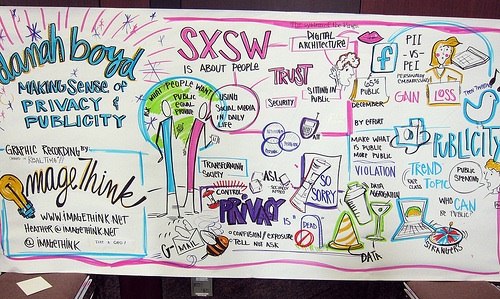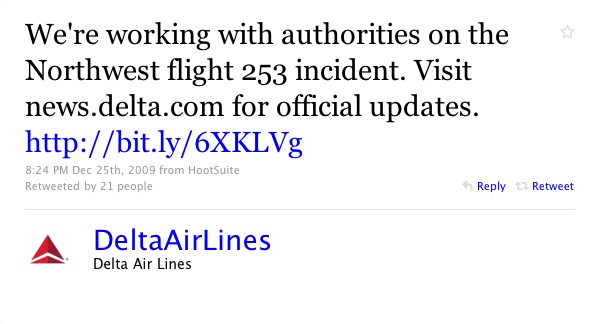SXSWi Speakers Wrap-Up: danah boyd
I’m back from Austin, slowly catching up in the office and working on synthesizing my thoughts from SXSW Interactive 2010. This was my second time attending, and there were a few things that I did differently and that were different in terms of the conference than in 2009. The SXSW experience contains many different parts, so I thought I’d break them down into more manageable bits versus one big overview post. I’m planning to break the pieces into the following parts, and if meaty enough a particular speaker or discussion might have its own post:
- Part One: Solo Speakers
- Part Two: Panel Discussions
- Part Three: Technology
- Part Four: Fun, Friends, Food
Part One: Solo Speakers
From my experience last year, I found that I get a lot from the best solo speakers as SXSW, and that panel discussions can be a bit more hit or miss. There were both keynote speakers each day and multiple sessions daily of what they called “featured speakers.” I arrived a bit later than anticipated Friday afternoon and stayed till Tuesday morning, but was able to fit in a lot of content between Saturday — Monday.
danah boyd
danah boyd delivered the Opening Remarks for the conference, and she was someone I was really looking forward to hear speak. She’s with the Harvard Berkman Center for Internet and Society and Microsoft Research New England, and her research into social media (and youth & teens in particular) is something I’ve shared in both my consulting and teaching work. Her talk at SXSW, “Making Sense of Privacy and Publicity,” centered on a few themes, and what I think she did particularly well was to shed light on the nuance of the debate around privacy online, which too often devolves into two extremes.
I took five pages of notes, but I’ll try to paraphrase what I saw as the main points from her talk:
- Privacy is about control of information flows. When people feel like they don’t have control of their information they feel like their privacy has been violated. This includes the opt-out versus opt-in debate.
- Technologists assume that the most optimized system is the best one, but forget about social values and social rituals. (e.g. discussion of Google Buzz launch)
- Merging worlds. Just because someone puts something online doesn’t mean they want it to be publicized (difference between public and publicity). There’s a security in obscurity – most people online have very few followers. Making something that’s public more public can be a violation of privacy.
- By continuing to argue that privacy is dead, technologists work to make data more public and things public that were never meant to be. We’re seeing a switch to public by default, private through effort.
- With privilege, it’s easy to take for granted things that not everyone gets to experience, and with privilege comes a different value proposition – what one person may gain from publicness, another person may lose. This affects not only groups sometimes thought of as marginalized (immigrants, victims of abuse, LGBT community), but also groups like teachers – they have more to lose by public information online. Public by default isn’t always a democratizer.
Her full unedited talk is available on her site here. I urge you to spend the time reading it, as I’ve captured only a small sliver of a very wise discussion.
[Note: this post is cross-posted on the Logos blog.]

